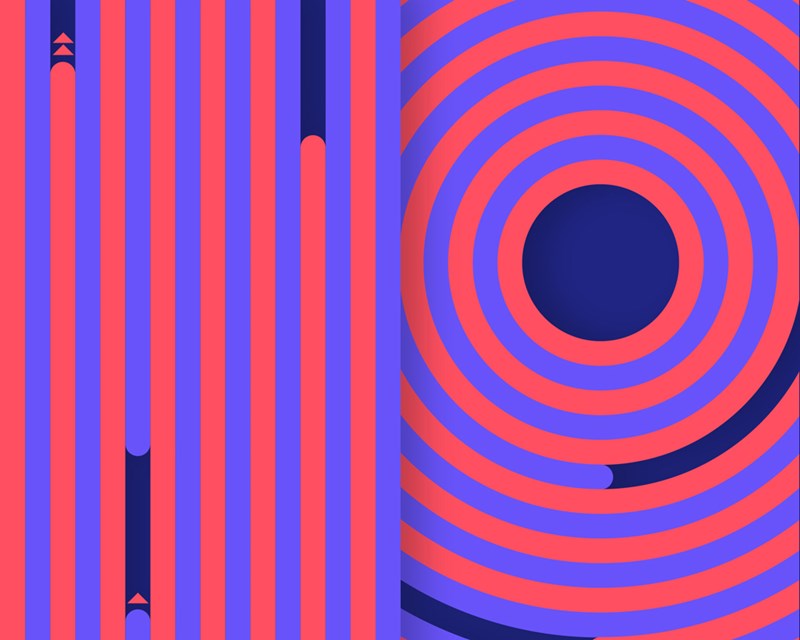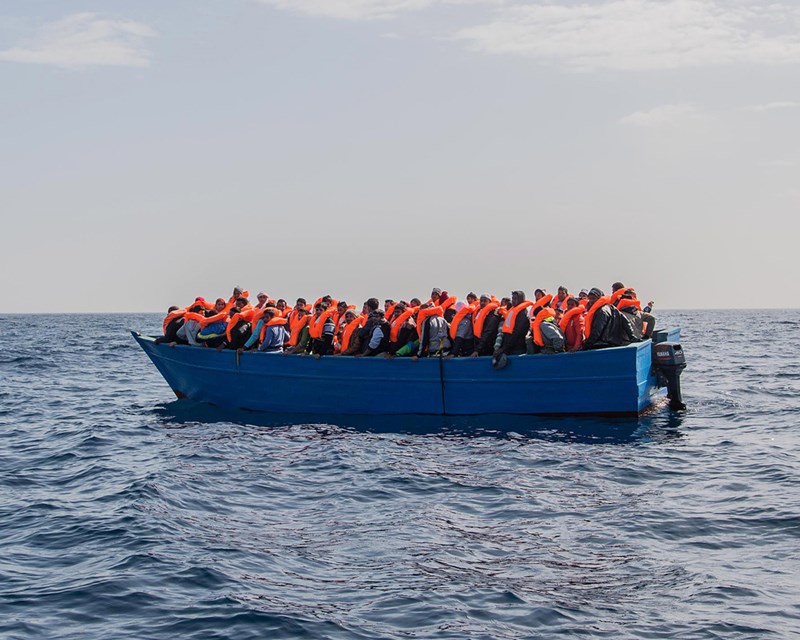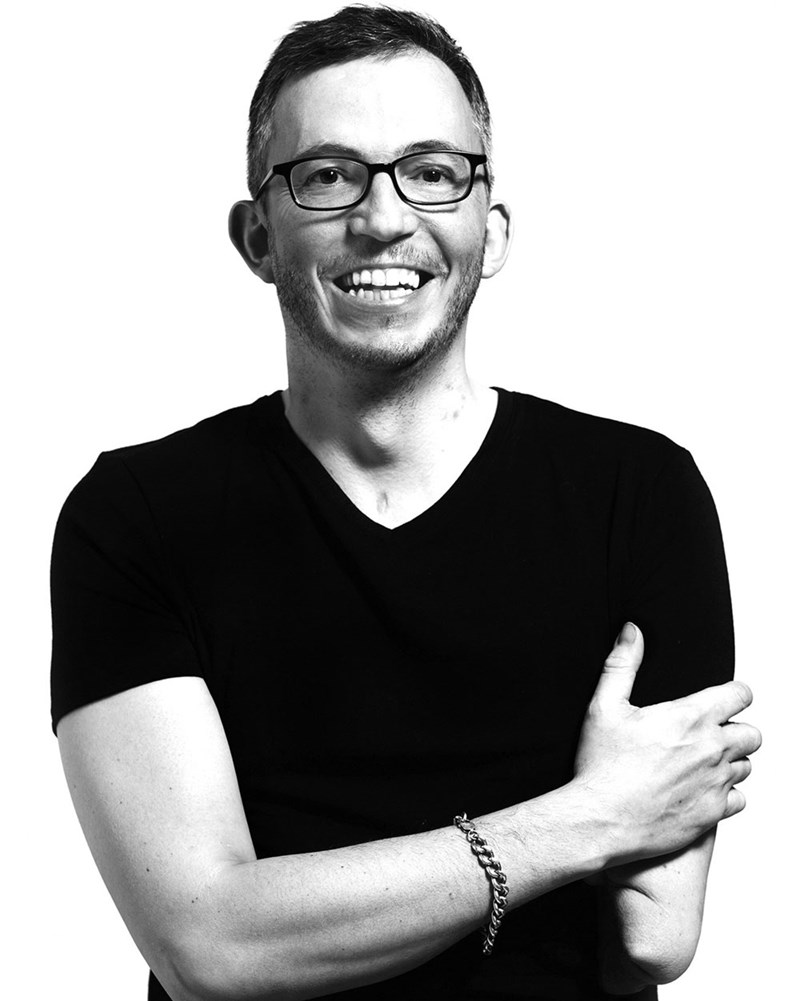'We are supporting humans, not machines'
For some survivors, the smell of the sea is enough to take them back. Just the scent and they are in the chaos of the boat, or on the beach, watching bodies falling into the water around them. This is what happens when trauma manifests itself in the brain: any signal can trigger it, hours, days, weeks, even years after the event. And this is the process we try to prevent through our work.
The seeds of Humanity Crew were sown in late 2015, on the shores of Lesbos, Greece. My wife, Maria, and I had travelled from our home in Haifa to the island to help with the unfolding refugee crisis, volunteering in the hospitals and on the beach. As a physician turned psychiatrist, I worked on the beach providing emergency care, while Maria, a lawyer, moved between the local hospitals and camps to support the people there.
Just days after we arrived, the number of refugees flooding in began to peak – 6,000 or more in boats every day – and no one was ready for it. In my first month, I resuscitated dozens of people and confirmed the deaths of 54 more. It was chaos. In one day, more than 240 people were rescued by local fishing boats, volunteers and the Greek coastguard: babies, children and adults, all fighting to survive after their boat capsized.
Among them was a boy called Ahmed. He’d almost died coming ashore but I’d given him CPR and he’d survived. I hadn’t known his name, but we later saw a picture of him in a newspaper and Maria recognised him. She’d seen him at the hospital, after the rescue. He’d been in a catatonic state for days after he arrived, completely silent and unresponsive, so she’d spent a lot of time with him talking in Arabic. It took three days for him to speak his first words to her, and they were, “I want home”.
Hearing his story, a penny dropped for me. I understood for the first time how important mental health support is from the very earliest stages of humanitarian aid.
Humanity Crew was created after that first trip to Lesbos, initially just as a team of two clinical psychologists. We chose the name because we wanted to bring people together from all over the world in one mission, to help the displaced feel human again. Today, we’ve completed more than 250 missions and provided more than 30,000 hours of mental health support to refugees, helped by over 220 qualified volunteers. We put ourselves on the frontline of humanitarian crises because we believe there is no first aid without psychological aid. We are supporting humans, not machines.
We use a four-step approach with interventions designed for each step of a refugee’s journey. We believe that as the body goes on a journey, so too does the mind. The first stage is the acute trauma of fleeing their home. The second stage is transit, shaped by the uncertainty of life in the camps, and stage three is the upheaval of deciding where to resettle or seek asylum. The final and fourth stage is the process of resettlement and of adjusting to life in a new country.
In the first two stages our focus is on interrupting the trauma, before it crystallizes in the brain. With children who’d arrived by boat and were crying and terrified, we’d reframe their story as it happened, telling them that only heroes are brave enough to cross the sea and stop the waves with their hands. In the first minutes after rescue, our volunteers would take their pictures and ask for their autographs.
Later, in the camps, they’d be encouraged to write and sing songs about their bravery. This intervention gives the amygdala – the part of the brain that holds emotional memory – a new narrative to play out to offset the trauma. In the children’s eyes they aren’t victims, they’re superheroes. That’s the power of the golden hour in reframing their memories.
“We believe that there is no first aid without psychological aid.”
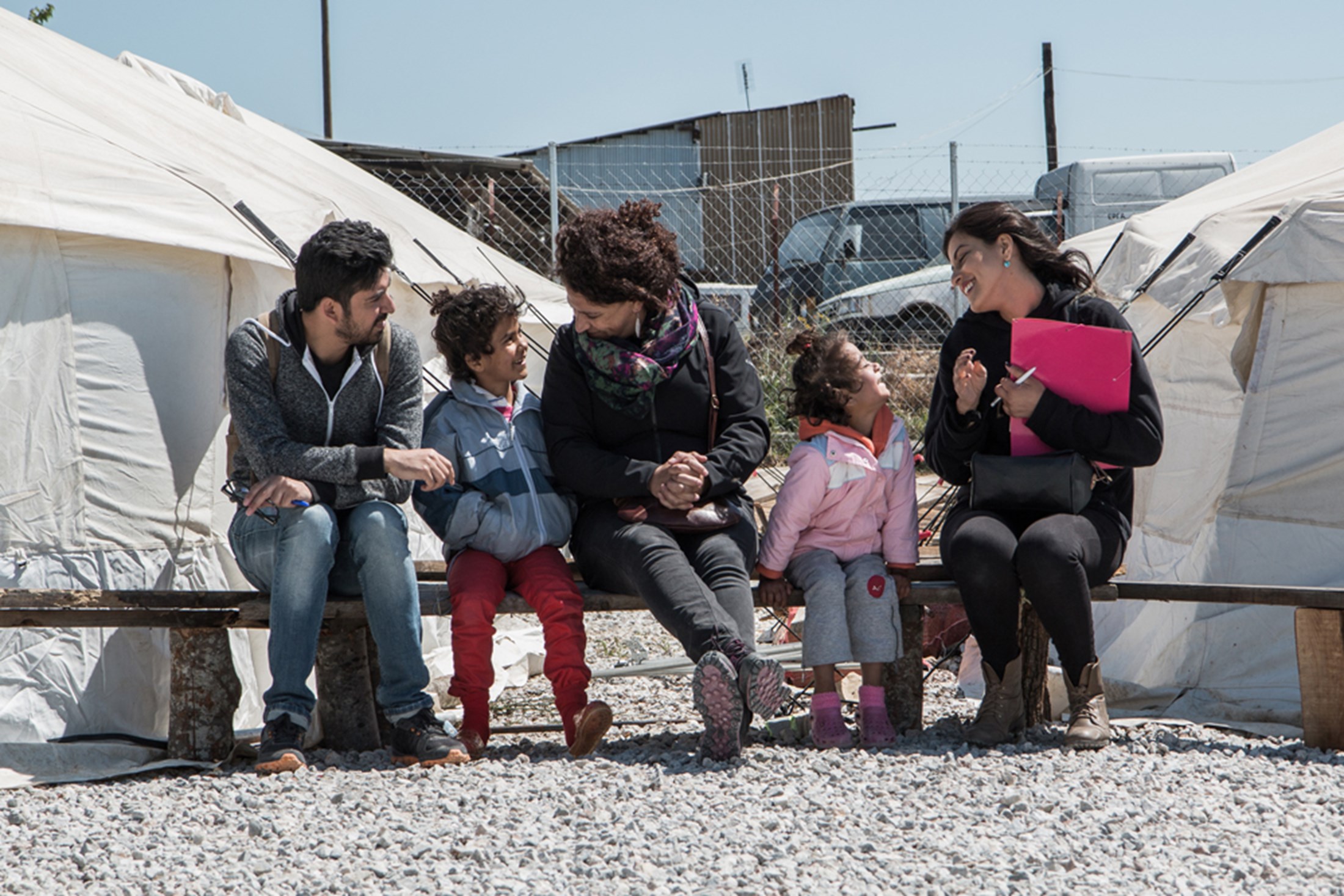
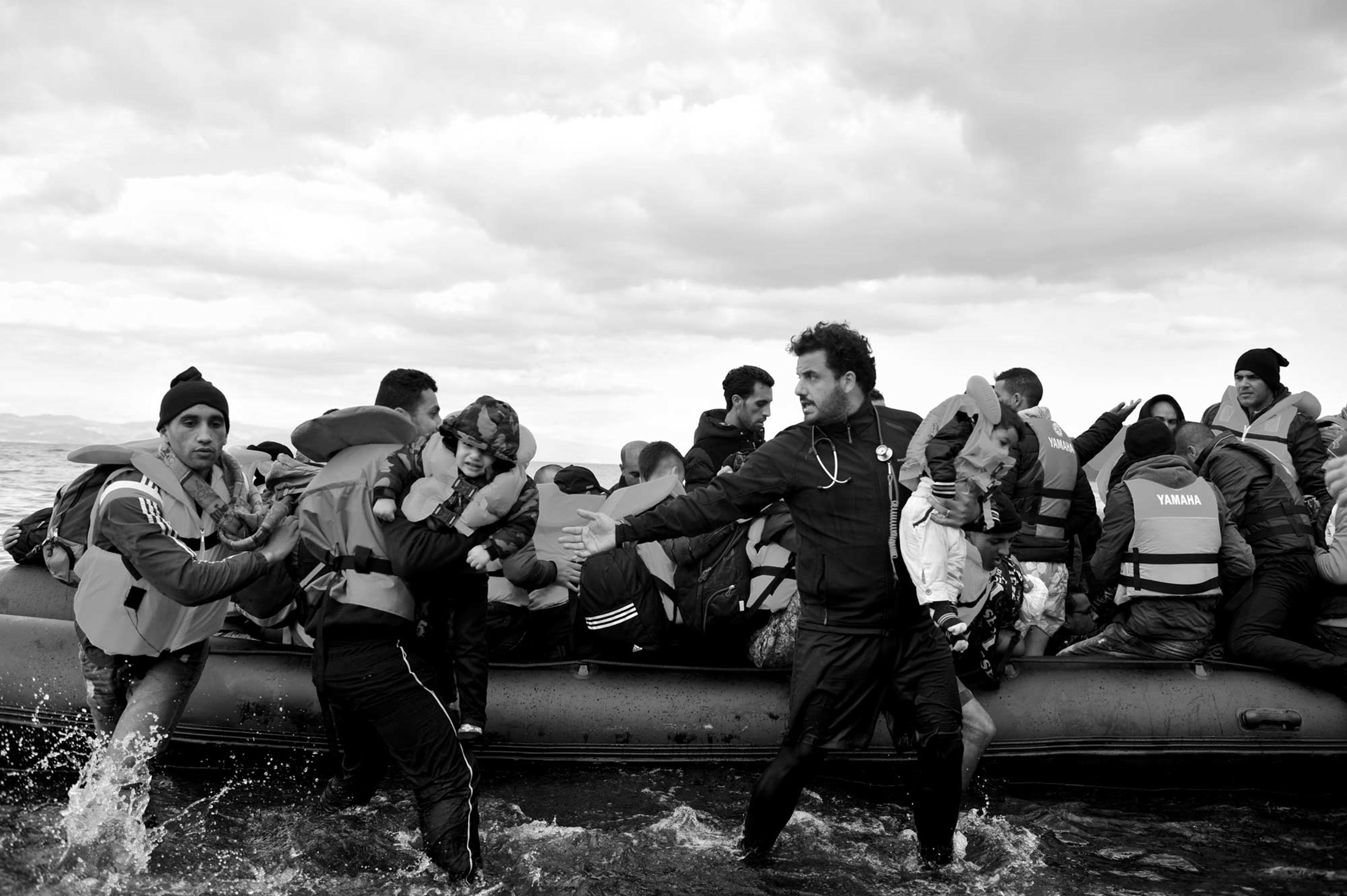
In the camps, we use a three-step approach. We start by working with the whole community, pumping life at them and encouraging them to engage. If you’re a hairdresser, come and cut hair. If you’re a teacher, then teach. We celebrate birthdays and holidays, and other occasions.
Over time, our team monitors the camp to see who’d benefit from group therapy and, from there, we pinpoint the people who need one-on-one support. That’s how, even with a small team, we’re able to identify the small number of refugees that need focused help.
An essential aspect is that we share a common culture and language: we are Palestinian too, so we know how to make those connections with them. In our community activities we bring in olive oil, thyme and manakeesh; scents that connect people to their family, home and childhood. We play Arabic music and dance. I’ve had people tell me: "For two years, I couldn’t remember my mother’s smell, and now I can.” It interrupts the trauma loop with good memories.
For the first six months of its existence, Humanity Crew survived on support from private donors. On one occasion we had $6 in the bank account and everyone was panicking. I said, “no, don’t worry.” The next day, a holocaust survivor donated €30,000. Another philanthropist, when he learned we didn’t have an IBAN number, sent a representative to help us set up our offices. They were like guardian angels.
In 2018, I was named a TED Fellow and gave a TED talk in Vancouver, and that was the start of a lot of larger foundations approaching us. While we're optimistic, we’ve always seen our donors like family – the type of people who support us do it because they trust and believe in our work.
Our biggest struggle is convincing people that what we do is a major component of humanitarian aid. Too many people on the frontline are unqualified, short-term volunteers, and that can do harm. Our own staff fall into two groups: trained volunteers who commit to staying for between one and three months, and our professional team, who oversee our volunteers. We run a recruitment drive every few months but we are very selective about who we take. From 1,000 applicants, we may take 300 for training, and only 50 will go on to work with us.
We also offer expert training to aid workers, volunteers and other groups. In a ‘train the trainer’ approach, we cover cultural and lingual sensitivities, in addition to mental health, so they are culturally aligned with those they want to help.
Mental health is marginalised in everyday life, and even more so in a crisis situation, where resources are already so stretched. But it is the cornerstone of long-term integration and inclusion.
If we don’t invest in refugees’ mental health, they remain broken, and then there is the risk they will find something else to fill the gaps in their lives. Those who are supported can contribute to society: they are more likely to be educated and employed, they are less likely to have extremist views. There are long-term benefits. Every refugee wants to go home, and to be strong enough to help rebuild their country when they return. — PA
“Too many people on the frontline are unqualified, short-term volunteers, and that can do harm.”





